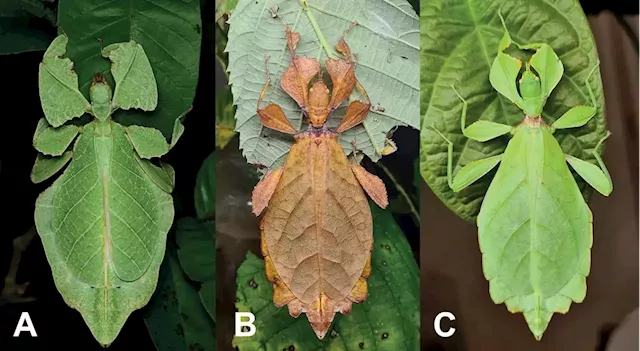The study indicates a potential risk for serious health consequences, such as Alzheimer's disease. Microplastics, a highly prevalent form of plastic pollution, have infiltrated air, water, and food chains globally. Despite the widespread acknowledgment of their adverse effects on the environment an
New research has found that exposure to microplastics led to behavioral changes and immune alterations in mice, particularly older ones. The study discovered that microplastics accumulated in multiple tissues, including the brain, and may contribute to conditions similar to dementia.Microplastics, a highly prevalent form of plastic pollution, have infiltrated air, water, and food chains globally.
Ross’ team—which includes Research Assistant Professor Giuseppe Coppotelli, biomedical and pharmaceutical sciences graduate student Lauren Gaspar, and Interdisciplinary Neuroscience Program graduate student Sydney Bartman—exposed young and old mice to varying levels of microplastics in drinking water over the course of three weeks. They found that microplastic exposure induces both behavioral changes and alterations in immune markers in liver and brain tissues.
To understand the physiological systems that may be contributing to these changes in behavior, Ross’ team investigated how widespread the microplastic exposure was in the body, dissecting several major tissues including the brain, liver, kidney, gastrointestinal tract, heart, spleen and lungs. The researchers found that the particles had begun to bioaccumulate in every organ, including the brain, as well as in bodily waste.
That brain infiltration also may cause a decrease in glial fibrillary acidic protein , a protein that supports many cell processes in the brain, results have shown. “A decrease in GFAP has been associated with early stages of some neurodegenerative diseases, including mouse models ofdisease, as well as depression,” Ross said. “We were very surprised to see that the microplastics could induce altered GFAP signaling.
United States Latest News, United States Headlines
Similar News:You can also read news stories similar to this one that we have collected from other news sources.
 Scientists Find That Microplastics Cause Dementia-Like Symptoms in MiceA new study found that 'acute exposure' to microplastics causes dementia-like symptoms in mice, in addition to other behavioral shifts.
Scientists Find That Microplastics Cause Dementia-Like Symptoms in MiceA new study found that 'acute exposure' to microplastics causes dementia-like symptoms in mice, in addition to other behavioral shifts.
Read more »
 Scientists Discover 7 “Cryptic” New Species of Walking LeavesAn international team of scientists, including researchers from the University of Göttingen, has unveiled seven new species of leaf insects, commonly known as walking leaves. A team of international researchers, including experts from the University of Göttingen, has identified seven new species of
Scientists Discover 7 “Cryptic” New Species of Walking LeavesAn international team of scientists, including researchers from the University of Göttingen, has unveiled seven new species of leaf insects, commonly known as walking leaves. A team of international researchers, including experts from the University of Göttingen, has identified seven new species of
Read more »
 Scientists Discover New Side Effect of Birth Control PillsRecent research indicates that birth-control pills adversely affect women's ability to manage stress. Since the 1960s, women have been using contraceptive pills, yet the intricate ways in which these hormone-filled tablets interact with the body are not fully understood. A team of scientists fro
Scientists Discover New Side Effect of Birth Control PillsRecent research indicates that birth-control pills adversely affect women's ability to manage stress. Since the 1960s, women have been using contraceptive pills, yet the intricate ways in which these hormone-filled tablets interact with the body are not fully understood. A team of scientists fro
Read more »
 Challenging Common Understanding: Scientists Discover Unexpected Quantum Interference AnomalyIn a paper recently published in Nature Photonics, scientists from the Center for Quantum Information and Communication – Brussels Polytechnic School of the Free University of Brussels report the discovery of an unexpected counter-example that challenges conventional understanding of photon bunching
Challenging Common Understanding: Scientists Discover Unexpected Quantum Interference AnomalyIn a paper recently published in Nature Photonics, scientists from the Center for Quantum Information and Communication – Brussels Polytechnic School of the Free University of Brussels report the discovery of an unexpected counter-example that challenges conventional understanding of photon bunching
Read more »
 Microplastics Can Travel Into the Brain and Cause Behavioral Changes, Study FindsMice were exposed to microplastics in their drinking water, and those with higher exposures behaved erratically.
Microplastics Can Travel Into the Brain and Cause Behavioral Changes, Study FindsMice were exposed to microplastics in their drinking water, and those with higher exposures behaved erratically.
Read more »
 Scientists say study found a direct link between greenhouse gas emissions and polar bear survivalScientists say in a new study that they've established a direct link between greenhouse gas emissions and polar bear cub survival
Scientists say study found a direct link between greenhouse gas emissions and polar bear survivalScientists say in a new study that they've established a direct link between greenhouse gas emissions and polar bear cub survival
Read more »
